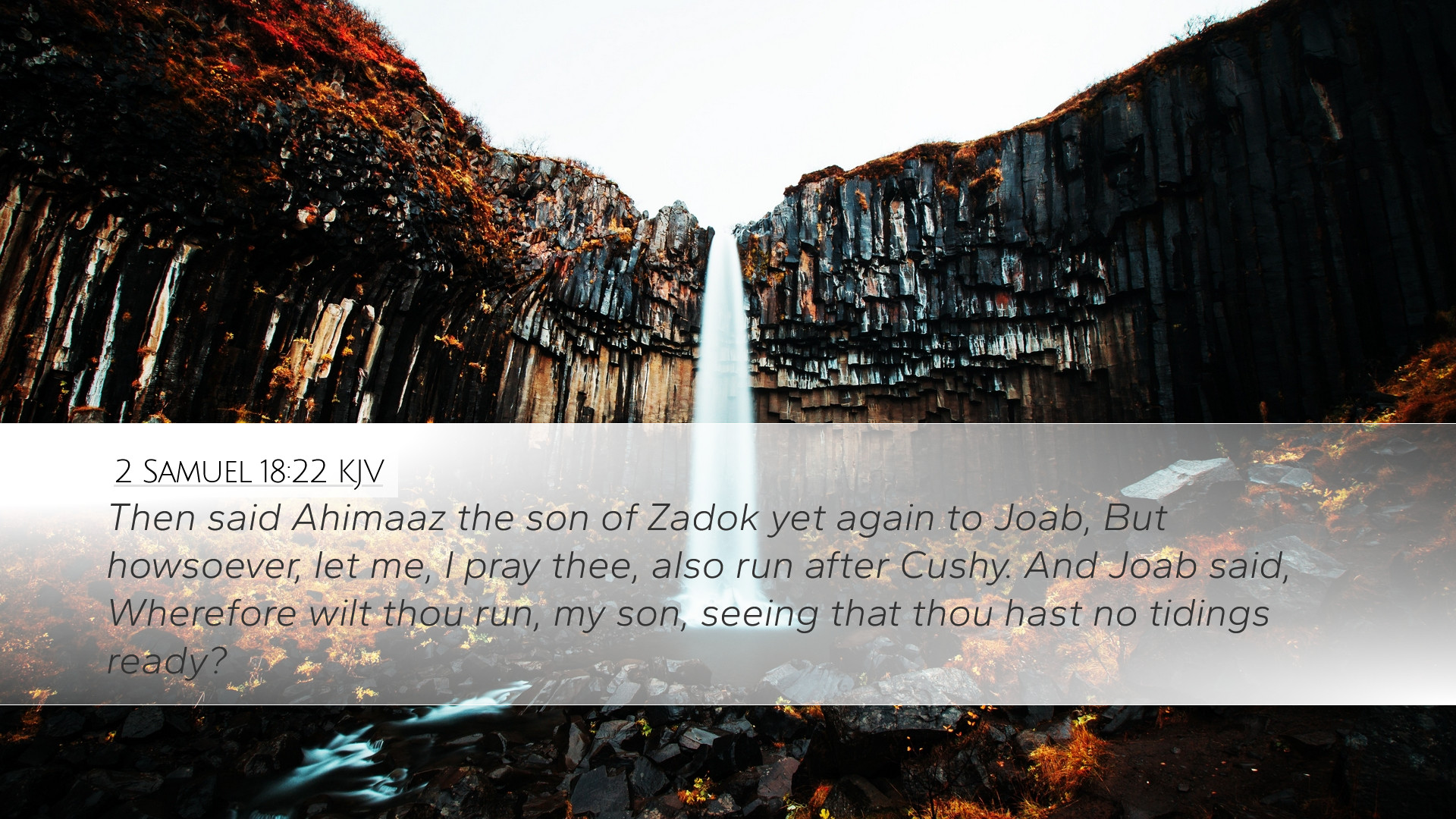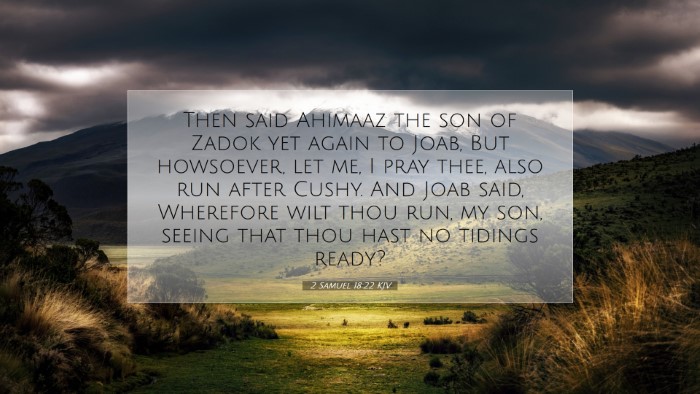Commentary on 2 Samuel 18:22
Verse Context: 2 Samuel 18:22 states, "But Ahimelech the son of Abiathar said to Joab, 'You shall not bear tidings this day, but you shall bear tidings another day. But this day you shall bear no tidings, because the king's son is dead.'" This moment is steeped in emotional weight, capturing the aftermath of Absalom's rebellion and the resultant loss, particularly David's grief over the death of his son.
Analysis of the Verse
Historical Background: During this chapter, Absalom, David’s son, has been killed, and the tide of rebellion has indeed turned. David, in his quest to retain his kingship amidst familial strife, faces the repercussions of his son's betrayal. This scene illustrates a pivotal moment that reflects the broader narrative of conflict within David's reign, including personal tragedy and political turmoil.
Key Characters:
- Ahimelech, son of Abiathar: A priest involved in the communication between Joab and King David, showcasing the tension and moral complexities of leadership.
- Joab: The commander of David's army, tasked with bearing the news of the battle's result. His character often oscillates between loyalty to David and ruthlessness in achieving victory.
- King David: The father mourning the loss of his son, representing the depth of a parent's love and the sorrow of leadership faced with devastating news.
Theological Insights
The death of Absalom encapsulates a deeply tragic irony; the prince's rebellion was effectively a death knell for both himself and a significant portion of his father's reign. The theological reflections here delve into themes of sin, consequence, and the intergenerational fallout of choices made.
Matthew Henry's Reflection:
Matthew Henry emphasizes the gravity of bearing news, especially in the context of a father’s grief. He reflects on how the consequences of sin escalate, affecting not just the sinner but those in their sphere. This sentiment underlines the need for sensitivity in delivering news of great importance and the role of wisdom in understanding the emotional state of those impacted.
Albert Barnes' Commentary:
Albert Barnes points out the significance of instruction from Ahimelech to Joab, asserting that some messages are too heavy to carry. He intimates that discernment is crucial in leadership and pastoral care, especially in recognizing when to shield individuals from distressing news or to delay its delivery until an opportune moment. This highlights pastoral sensitivity and the moral responsibilities leaders hold when conveying messages of pain or loss.
Adam Clarke's Exposition:
Adam Clarke offers a practical examination of Ahimelech's admonition to Joab, noting that there is a time for everything, including the bearing of messages. His commentary invites readers to consider the broader social implications of communication within the community of faith. Clarke’s insights reflect upon the necessity of compassion in leadership, urging followers to navigate the delicate balance of truth and love, especially in the aftermath of tragedy.
Lessons for Modern Application
In pastoral settings today, the nuances of this scriptural passage invite deeper reflection on how we handle situations where grief and news intersect. They encourage leaders and church communities to think critically about their roles in the lives of others.
- The Weight of News: Understanding that the delivery of significant news—especially bearing the weight of loss—requires not just truthfulness, but also empathy and care.
- Timing in Communication: Recognizing that sometimes the anticipation of news can be just as impactful as the news itself, thus highlighting the need for tact and timing.
- Empathy in Leadership: Emphasizing that leaders bear a dual responsibility—both to convey truth and to nurture the hearts of those they lead.
Conclusion
2 Samuel 18:22 serves as a reminder of the complex interplay between communication, leadership, and human emotion. As we delve into this scripture, we are forcefully reminded of the need for sensitivity in our interactions and the responsibility that comes with leading others through turmoil and grief.


